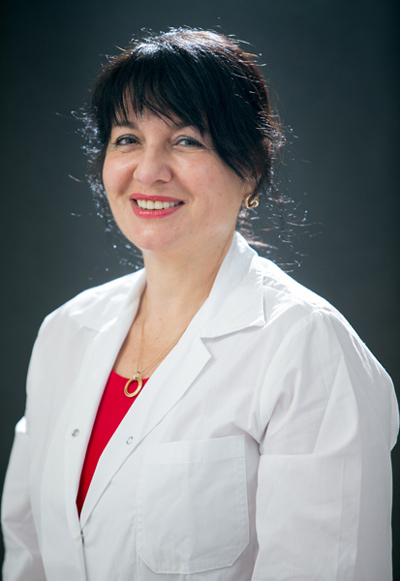
Prof. Francesca Levi-Schaffer from the School of Pharmacy has been elected President of the International Union of Basic and Clinical Pharmacology (IUPHAR).
Prof. Levi-Schaffer is the first woman and the first Israeli to serve in this position.
Francesca Levi-Schaffer is a Professor at The Hebrew University of Jerusalem Institute for Drug Research, School of Pharmacy, Faculty of Medicine. She holds the Isaac and Myrna Kaye Chair in Immunopharmacology.
Prof. Levi-Schaffer was born in Italy and completed her PharmD degree at the University of Milano, her PhD degree in Immunology at the Weizmann Institute of Science, Israel, and her post-doctorate at Harvard Medical School.
Prof. Levi-Schaffer has published 170 articles in peer-reviewed journals, 96 reviews and editorials 25 book chapters and 7 other publications, including a book chapter (in Italian) on bioethics and two articles on bioethics. She has three patents and two provisional patents pending.
She is Chairperson of the National Committee of IUPHAR representing the Israel Academy of Sciences and Humanities, was instrumental in the establishment of an Immunopharmacology Section in the IUPHAR and currently serves as its first Chairperson. She is a member of the Israeli Ministry of Health Committee for Human Experimentation of New Drugs; 1st Vice-President and member of the IUPHAR Executive Committee (2018-2022); President of European Mast Cell and Basophil Research Network (EMBRN) (2019-2023); member of Editorial Board of the Journal of Allergy and Clinical Immunology (2019-2024); honorary fellow of the Royal College of Physicians (UK) (2020); member of EU COST Action CA19105 LipidNET- Pan-European Network in Lipidomics and Epilipidomics (2020-2024).
She previously served as a member of the Committee for the Formulation of the Ethical Code for Scientists in the State of Israel; member of the Ethics Committee of the European Academy of Allergy and Clinical Immunology and member of the Ethichs/Conflict of Interest Committee of the American Academy of Allergy, Asthma and Immunology.
In 2019 Prof. Levi-Schaffer participated in an Erasmus short-term exchange program as a lecturer in a program on bioethics from the bench to the bedside at the University of Vilnius.
Prof. Levi-Schaffer’s expertise is in immunopharmacology of allergy focusing on mast cells and eosinophils, their activating and inhibitory receptors, and their cross-talk for a better prophylaxis/treatment of allergic diseases. Moreover, she studies the role of mast cells and eosinophils in hypoxia (allergy, COPD); mastocytosis and its treatment; the crosstalk between atopic dermatitis and asthma with the microbiome. Her group is also developing novel monoclonal antibodies and bispecific antibodies against activating and inhibiting receptors on mast cells and eosinophils for the treatment of allergy and of selected solid tumors.
Here is the “motivation letter” that she wrote and which IUPHAR shared on their site:
“I am a pharmacologist and immunopharmacologist working in the field of allergy. I hold the first chair in immunopharmacology and created the first course in immunopharmacology at the Hebrew University. My professional goal is to find drugs to prevent/ treat allergy. Therefore, I see IUPHAR as my natural home, and pharmacology as the most important science the world needs.
I believe that to make things happen you have to take the lead. I have a proven background of leadership demonstrated through my roles in IUPHAR and in other global professional scientific organizations. As a member of the IUPHAR ExCom, I am extremely familiar with its structures and a number of national societies. I possess the tools critical to carry out the role of President-Elect, to build on IUPHAR’s strong base and lead it to reach its goals.
I am motivated to increase communication with other global science organizations with the aim of furthering scientific research, development and knowledge through international cooperation. I am a team builder and have effectively managed difficult and controversial issues taking all views into account.
Depending on our locale, education, culture, and gender, we have varying perceptions, ideas, and priorities regarding pharmacology. My aim is to harmonize pharmacology through open channels of communication, making it inclusive rather than exclusive, thus strengthening it on a global level and enabling access to all regardless of geographical location.
I will continue as an active researcher and academic, but leading IUPHAR will be my highest professional priority.”